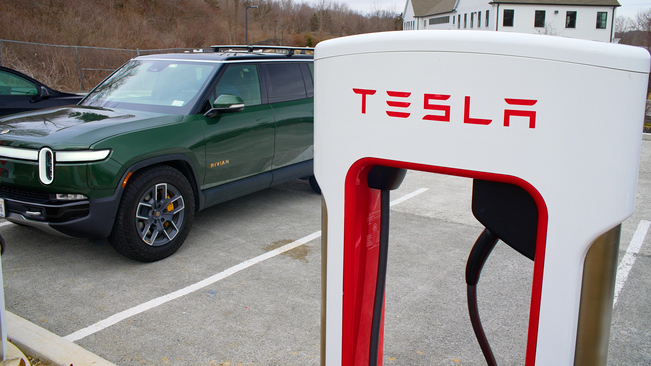In 2023, the automotive world is undergoing a transformative shift as electric vehicles (EVs) continue to gain ground over traditional gas-powered cars. According to Bloomberg Green, EV sales are expected to surpass 10 million units globally this year, highlighting their growing popularity. As consumers navigate their choices between EVs, hybrids, and gas cars, understanding the efficiency trends becomes crucial. This article will explore key insights into the efficiency of these vehicles, offering guidance on which option might best suit your needs.
Understanding Vehicle Efficiency: EVs, Hybrids, and Gas Cars
Electric Vehicles: The Future of Efficiency
Electric vehicles are leading the charge towards sustainable mobility. With advancements in battery technology, EVs are becoming more efficient and affordable. According to InsideEVs, the latest models from Tesla, Rivian, and Lucid Motors boast ranges exceeding 300 miles per charge, thanks to innovations in lithium-ion batteries and improved energy management systems.
- Efficiency: EVs convert over 77% of the electrical energy from the grid to power at the wheels, compared to 12-30% for gasoline vehicles.
- Cost Savings: Charging an EV costs significantly less than refueling a gas car. The IEA reports that the average cost of charging an EV is about $0.10 per kWh, translating to roughly $5 for a full charge.
- Environmental Impact: Zero tailpipe emissions make EVs a cleaner choice, contributing to reduced urban air pollution.
Hybrids: A Balanced Approach
Hybrids offer a blend of electric and gasoline propulsion, making them a versatile choice for those not ready to commit fully to electric power. Brands like Toyota and Hyundai have popularized hybrids with models such as the Prius and Ioniq.
- Efficiency: Hybrids typically achieve better fuel economy than gas cars. For instance, the Toyota Prius averages 56 mpg, significantly higher than the average gas car.
- Versatility: Hybrids provide the reliability of a gasoline engine with the added efficiency of an electric motor, ideal for those with varied driving patterns.
- Lower Emissions: While not as clean as EVs, hybrids emit fewer pollutants than traditional gas cars.
Gas Cars: The Traditional Choice
Despite the push for electrification, gas-powered cars remain a staple in many regions due to their established infrastructure and lower upfront costs. However, their efficiency lags behind newer technologies.
- Efficiency: Gasoline engines have seen improvements but still offer lower efficiency compared to EVs and hybrids. Average fuel economy hovers around 25 mpg.
- Infrastructure: Gas cars benefit from a well-established refueling network, making them convenient for long trips without needing to plan charging stops.
- Environmental Impact: Gas cars contribute significantly to greenhouse gas emissions, accounting for a substantial portion of global CO2 emissions.
Comparing Costs and Benefits
When choosing between EVs, hybrids, and gas cars, it’s essential to consider both the short-term and long-term costs and benefits.
Cost Comparison
- Upfront Costs:
– EVs often have a higher purchase price but may qualify for government incentives and tax credits.
– Hybrids are generally more affordable than EVs and may also benefit from incentives.
– Gas cars typically have the lowest initial cost but lack incentives.
- Operating Costs:
– EVs have lower maintenance costs due to fewer moving parts and no need for oil changes.
– Hybrids’ maintenance costs are slightly higher than EVs but lower than gas cars.
– Gas cars incur higher costs for fuel, maintenance, and repairs.
Practical Recommendations
- For Urban Commuters: EVs are ideal for city dwellers with access to charging infrastructure.
- For Long-Distance Travelers: Hybrids offer the flexibility needed for varied driving conditions without range anxiety.
- For Budget-Conscious Buyers: Gas cars may seem appealing due to lower initial costs, but consider long-term expenses and environmental impact.
Charging and Refueling: What You Need to Know
How to Charge an EV
Charging an EV is straightforward but requires some planning:
- Home Charging: Most EV owners charge at home overnight using a Level 2 charger for faster charging times.
- Public Charging: Networks like Tesla Superchargers and ChargePoint provide fast charging options for on-the-go top-ups.
- Cost: Public charging costs vary but are generally cheaper than gasoline.
Where to Buy Your Next Vehicle
When deciding where to purchase, consider:
- Dealerships: Offer a range of EVs, hybrids, and gas cars. Look for dealers with dedicated EV specialists.
- Online Platforms: Companies like Tesla allow direct online purchases, sometimes with incentives for EV buyers.
- Certified Pre-Owned: For budget-conscious buyers, certified pre-owned options can provide savings.
Conclusion: Choosing the Right Vehicle for Your Needs
In 2023, choosing between EVs, hybrids, and gas cars depends on your lifestyle, budget, and values. EVs lead in efficiency and environmental benefits, while hybrids offer a balanced approach, and gas cars remain a traditional choice with widespread availability. As technology advances, these trends will continue to evolve, shaping the future of transportation. What will you choose for your next vehicle? Consider your priorities and the impact on both your wallet and the environment. As the world moves towards sustainability, your choice can contribute to a cleaner, more efficient future.

